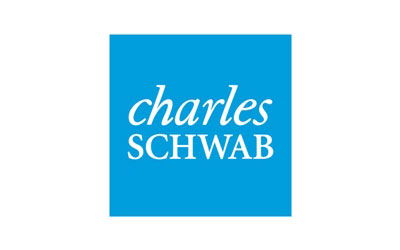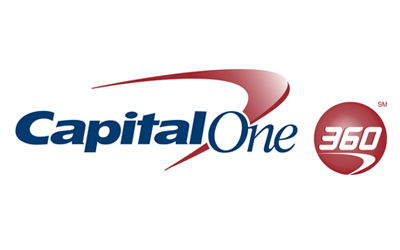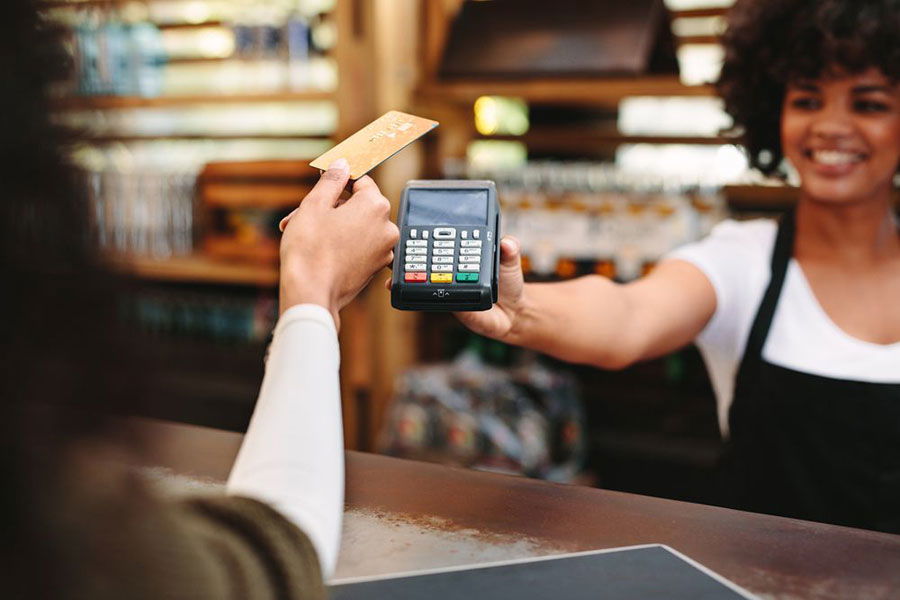So, you’re finally going to take that long dreamed of vacation overseas. Maybe you’re going to Paris for the first time. Perhaps you’ve planned a trip to Spain to see the running of the bulls.
Or, if you’re the more adventurous type, perhaps it’s a safari in Africa. Whatever place you’ve decided to visit, you’ve put a lot of thought into it.

Traveling abroad takes all kinds of prep work. You’ve likely checked the weather to know what clothes to pack. You’ve checked with your doctor to see if you need any vaccinations.
You have your passport in order, and the plane tickets are waiting for you at the gate. But have you thought about how you’re going to get access to your money once you arrive?
When traveling overseas, it’s not as simple as swiping your debit card at the register or hitting up the nearby ATM. We’ll let you in on the best debit cards for international travel so you can go abroad with confidence.
Best Debit Cards with No Foreign Transaction Fees
Many big banks may make you pay through the nose to take out some spending cash when you’re on an overseas trip. However, some banks offer debit cards with no foreign transaction fees.
Here’s a list of the top five banks you should use for your debit card if you’re going to be traveling outside the country.
Schwab Bank High Yield Investor Checking Account: No Fees
- No fee checking
- Unlimited ATM fee rebates worldwide
- No minimum balance requirement
- 0.45%APY on your checking account balance
Fidelity Cash Management Account: ATM Fee Rebates Worldwide
- Hassle-free banking
- Worldwide ATM fee rebates
- No minimum balance or monthly fee
- Earn up to 2.60% APY
Capital One 360: $0 Transaction Fees
- No service fees
- No minimum balance requirement
- No overdraft charges
- Get paid early up to 2 days sooner
Betterment: ATM Fees Reimbursed
- ATM fees & foreign transaction fees are automatically reimbursed
- No overdraft fees
- Earn up to 5.50% APY and cash back rewards
Best International Debit Cards with Low Foreign Transaction Fees
Ally Bank: 1% Fee
Ally Bank stands out as a top contender for the best international debit card with low foreign transaction fees. With its low fee structure, Ally charges a 1% fee for foreign transactions, which is one of the lowest rates in the industry.
Citizens Bank: 2% Fee
Citizens Bank is a great regional bank based in Rhode Island that serves a large portion of the northeastern United States.
How to Choose the Best International Debit Card
If you’re a frequent traveler or someone who regularly makes purchases from foreign merchants, selecting the best international debit card is crucial. With a plethora of options available, making the right choice can be overwhelming. Here are a few factors to consider when picking an international debit card that is tailored to your needs:
- Acceptance: You should ensure that the checking account and debit card you choose is accepted in the countries you plan to visit. You wouldn’t want to be caught in a sticky situation where your card gets declined at the point of sale or while withdrawing money from an ATM. That said, it’s safe to opt for a card that belongs to the Visa or Mastercard network as they are widely accepted internationally.
- Fees: Evaluate is the fee structure associated with the debit card. You’ll want to look for a card that has low or zero foreign transaction fees as they can quickly add up and burn a hole in your pocket. Besides this, it’s worth checking if the bank charges an ATM withdrawal fee or any other fees.
- Exchange rates: Check the exchange rates offered by the bank or the card provider. Having a favorable exchange rate can save you a significant amount of money on foreign transactions.
- Rewards: Some international debit cards come with lucrative rewards programs that allow you to save money or earn points when you use your card. It’s worth considering the rewards offered and determining if they align with your spending habits and travel plans.
- Accessibility: A bank or a card provider with a robust international presence, having a large network of ATMs and branches, can make it easier for you to access your money and get assistance if required.
- Travel insurance: Another vital consideration when traveling abroad is to ensure that you have adequate travel insurance. Some international debit cards provide it as a part of their package, so it’s worth exploring the options.
- International money transfers: If you plan to send or receive money while traveling, you’ll want to look for a debit card that offers international money transfer services.
- Customer service: Having access to reliable customer support can be helpful, especially when you’re in a different time zone. Thus, it’s beneficial to choose a bank or a card provider that offers round-the-clock customer support.
- Security: In today’s digital age, it’s essential to select a debit card that prioritizes safety and security. You’ll want to choose a card that provides enhanced security features, such as fraud protection, the ability to set spending limits, and EMV chip technology, which adds an extra layer of protection against fraud.
- Zero liability: Make sure the debit card you choose has a zero liability policy in case of fraud or theft, which will ensure that you don’t bear any financial loss.
Should you use your debit card when traveling abroad?
The short answer to whether you should use your debit card is yes, you can. Visa, MasterCard, and other major credit card processors operate worldwide.
Your debit card will likely work in most countries you visit. There are, however, a couple of considerations to make before you travel to ensure your safety while getting the best deal.
Let Your Bank Know
When traveling abroad, it’s a good idea to let your bank know where you’ll be going. It’s one thing to have your debit card declined at the Starbucks around the corner from your house. It’s another thing to have your card declined and frozen while exploring the bazaars in Calcutta.
If you tell your bank when and where you’ll be traveling, their fraud alerts won’t be triggered when you purchase falafel thousands of miles from home.
Download the Mobile App
You should also download and activate your bank’s mobile app. Banks and credit card processors can use your phone’s GPS location to determine that you’re in the same location as the card you’re attempting to use.
Visa’s Mobile Location Confirmation software is built into most banking apps. It can confirm your physical location and allow a transaction to occur.
Make sure you accept all the terms and conditions of your banking app if you want to activate this feature. Again, contact your bank if you’re unsure and give them a heads-up that you’ll be out of the country.
Are there additional fees for using your debit card internationally?
Banking fees can vary widely from institution to institution. So, your bank may make it easier and safer to make debit card purchases when you’re out of the country. However, they could be charging you a lot on the back end.
Have you ever withdrawn cash from an out-of-network ATM when you’re in your hometown? Many banks will charge you $3 to $5 to do that, even if you’re just blocks from home. These bank fees can increase even more when you leave the country.
Withdrawing money from an ATM when you’re out of the country is no different from when you’re in the States. The fees you pay, though, will depend on the bank, and you should check before you go on vacation.
You can expect to pay fees that range from $2 to $5, plus an additional 2% to 3% of the total withdrawal amount.
Foreign Transaction Fees: What the Big Banks Charge
Ready to see how your bank stacks up? Here’s a list of nationwide banks that charge relatively hefty fees for international ATM use.
| BANK | SERVICE FEE | FEE PERCENTAGE |
|---|---|---|
| Bank of America | $5 | 3% |
| BB&T | $5 | 3% |
| Chase | $5 | 3% |
| CitiBank | $2 | 3% |
| Fifth Third | $5 | 3% |
| PNC Bank | $5 | 3% |
| Wells Fargo | $5 | 3% |
If you make an ATM withdrawal of $100 from an ATM in another country and you use any of these banks, you could be paying up to 8% just for the privilege of accessing your money. Sure, some customers have premier checking accounts and preferred cards, but you can expect to pay some hefty ATM fees if you don’t.
Debit cards are the easiest way to access cash when you’re out of the country, but it will cost you — unless you pick the right bank.
Alternative Payment Solutions for Overseas Travel
While using debit cards for traveling abroad is probably the best option, there are other options as well.
Credit Cards
Many credit cards offer competitive foreign transaction fees and can provide additional benefits such as travel insurance and reward points. Some credit cards also offer zero foreign transaction fees. However, it’s important to inform your bank about your travel plans to prevent your card from being blocked due to suspicious foreign activity.
Mobile Wallets
Mobile wallets like Apple Pay, Google Wallet, or Samsung Pay can be useful for contactless payments overseas, provided that the destination country has the necessary infrastructure. They offer the advantage of not having to carry physical cards, reducing the risk of loss or theft.
Pre-loaded Travel Cards
Some banks and financial institutions offer pre-loaded travel cards that can be loaded with a foreign currency of your choice. This allows you to lock in the exchange rate before you travel.
International Money Transfer Services
Services like PayPal, Western Union, and TransferWise allow you to send money abroad, which can then be withdrawn in the country’s currency. These services, however, often involve fees or exchange rate markups.
Cryptocurrencies
Some tech-savvy travelers use cryptocurrencies like Bitcoin for international transactions. A small but growing number of businesses around the world accept such currencies. Be mindful, though, that cryptocurrencies can be volatile, and the regulatory environment can vary greatly from country to country.
Traveler’s Checks
Traveler’s checks, once a preferred payment option for globe-trotters, offer security since they can be replaced if lost or stolen. Backed by established companies like American Express, they are recognized worldwide.
However, their utility has diminished over time due to high costs, including commission and exchange fees. In addition, they have limited direct usability, often requiring conversion into the local currency at exchange bureaus.

Prepaid Debit Cards and Gift Cards
Prepaid debit cards, once a convenient, anonymous option for international money transfer, fell from grace due to misuse. They became popular with criminals, leading to the 2009 Credit Card Accountability Responsibility Disclosure (CARD) Act, which now limits their overseas use.
Today’s prepaid Visa or MasterCard requires a name, ID, and usually bank association, but remain a viable option. Check out this list of top-rated prepaid debit cards.
Local Cash
It’s always a good idea to have some local currency on hand for emergencies or for vendors who don’t accept debit or credit cards. Be mindful to exchange your currency in trusted places and not to carry too much cash at once for safety reasons.
Exchanging Currency at the Airport
You can go to a currency exchange like Travelex to swap your dollars for whatever foreign currency you’ll be using for your visit. It’s fast, easy, and you can likely do it on your way to pick up your luggage.
The issue is that you’ll now be carrying large amounts of cash in an unfamiliar place, and there’s still the issue of large foreign exchange fees. Exchange rates at airports are the worst. You’ll pay a hefty currency conversion fee and very high rates.
On the other hand, a debit card can be safely tucked away and easily replaced if it’s lost or stolen.
See also: Where to Exchange Currency: Low-Fee Options
Bottom Line
When deciding on the best debit card to use internationally, it’s not always about the money. Talk to your bank and find out what security services and protections they offer. Transaction fees are important considerations, but so are fraud protection and safety procedures.
The best debit card for you may just be the one that keeps you happy and hassle-free while visiting the port of your dreams or that mountain you’ve always wanted to climb.
Enjoy your vacation!
Chime is a financial technology company, not a bank. Banking services and debit card provided by The Bancorp Bank N.A. or Stride Bank, N.A.; Members FDIC. Credit Builder card issued by Stride Bank, N.A.
1. Out-of-network ATM withdrawal fees may apply with Chime except at MoneyPass ATMs in a 7-Eleven, or any Allpoint or Visa Plus Alliance ATM.
2. Early access to direct deposit funds depends on the timing of the submission of the payment file from the payer. Chime generally make these funds available on the day the payment file is received, which may be up to 2 days earlier than the scheduled payment date.










